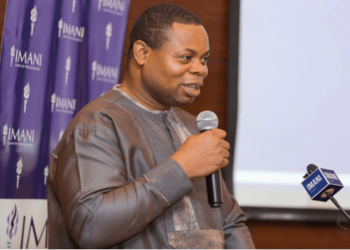Ghana is widely celebrated for its musical heritage: highlife, hiplife, and contemporary Afrobeats all bear the mark of Ghanaian creativity.
Artists such as Sarkodie, Stonebwoy, Shatta Wale, Black Sherif and a host of emerging performers have won regional attention and global playlists. Yet the presence of talent and momentary hits does not equal a functioning industry.
Despite international visibility, many Ghanaian musicians struggle to earn reliable royalties, labels and collecting societies are opaque or ineffective, and the sector lacks the investment, data systems and legal enforcement necessary to turn creative output into sustained economic activity. In short, Ghana’s music industry remains fragmented and fragile.
Award-winning Ghanaian singer KiDi has shared his frustration about the state of the creative space in Ghana, stating that the country does not have a functional music industry.
He argued that despite the global recognition of Ghanaian music, what exists is merely a label without the necessary structures to support it.
“Industry does this, industry does thaf, but from where I sit, we do not have an industry. Is there a name, like Ghana’s music industry, but we don’t have the structures that make us an industry. We’re just floating, doing our best with the little resources we have.”
KiDi
He expressed personal frustration about his own career trajectory, lamenting that after a decade of releasing numerous hit songs, the absence of a supportive system has prevented him from reaching hus full potential.
“After 10 years of all the hits I’ve had, if we had structures, I should be a mega superstar. But it’s one man for himself. You and your team have to find money for videos, for promotion, for everything. “
KiDi
KiDi pointed out that this lack of infrastructure affects even the country’s top artists, forcing everyone to operate individually.
“If you speak to Sarkodie, or Shatta Wale, or Stonebwoy, everybody is striving on their own with their team, trying to form their plans and marketing strategies. But we don’t have anything. When problems come, we blame the artists. If the artist goes up, the DJ goes up, the blogger goes up, and the radio presenter goes up. Everybody in the ecosystem goes up. But we’ve left the artists on the island and said, ‘You are the industry; do what you have to do.”
KiDi
His comments join the conversation about the need for structural reforms to build sustainable and collective entertainment industry is Ghana.
A functioning music industry depends on reliable collection and distribution of royalties. In Ghana, collecting societies and copyright enforcement have long been problematic.

The bodies charged with collecting public performance royalties and licensing rights have faced governance issues, low collection rates and disputes over transparency. As a result, many recorded plays on radio, in venues, or online do not translate into predictable income for creators.
When royalties are late, inconsistent, or diverted through opaque channels, artists and songwriters are forced to rely on ad hoc revenue sources rather than sustainable intellectual-property income.
Streaming has created new global revenue opportunities, but the shift also exposed weaknesses in Ghana’s market. Many Ghanaian artists receive only tiny fractions of a dollar per stream, and the negotiating power to secure favourable deals with digital service providers (DSPs) is limited.
Local and regional platforms compete on price and catalogue rather than on premium payouts, and insufficient metadata, rights-clearance systems and reporting mean streams often go uncompensated or under-credited.
Without stronger collective bargaining, better rights-management data and local licensing arrangements, streaming growth will not be converted into reliable artist income.
Piracy remains a challenge across many African markets, and Ghana is no exception. Unauthorized distribution, physical and digital erodes the market for paid content and disadvantages creators.
Enforcement mechanisms, both legal and practical, are inconsistent. Meanwhile, consumer education about paid services and intellectual property rights lags, creating persistent market distortions.
Counterarguments Acknowledged in Ghana’s Music Industry

It is important to acknowledge success stories: Ghanaian songs do make international playlists, artists headline international shows, and collaborations with Nigerian and global artists have raised profiles.
The Afrobeats boom has opened doors for Ghanaian creators, and streaming has made distribution easier than ever. However, these successes are uneven and often driven by individual talent rather than by an institutionally sound industry.
A few breakout stars do not compensate for structural deficiencies that prevent many professionals in the sector from making a living.
Ghana’s musical wealth is undeniable, but wealth of talent alone does not equal a functioning music industry. Structural and institutional weaknesses in rights management, monetization, investment, enforcement and professional development leave many creators without sustainable livelihoods and limit the sector’s economic contribution.
With targeted reforms, public and private investment, and stronger governance, Ghana converts its cultural capital into a resilient, well-paid music industry that benefits artists, workers and the broader economy.
The gap between the music on the world’s playlists and the domestic systems that should sustain its creators is not inevitable, it is fixable.
READ ALSO: Beyond US Visa Restriction Reversal: Ghana Moves to Renegotiate 15% Tariff and Secure AGOA Renewal



















